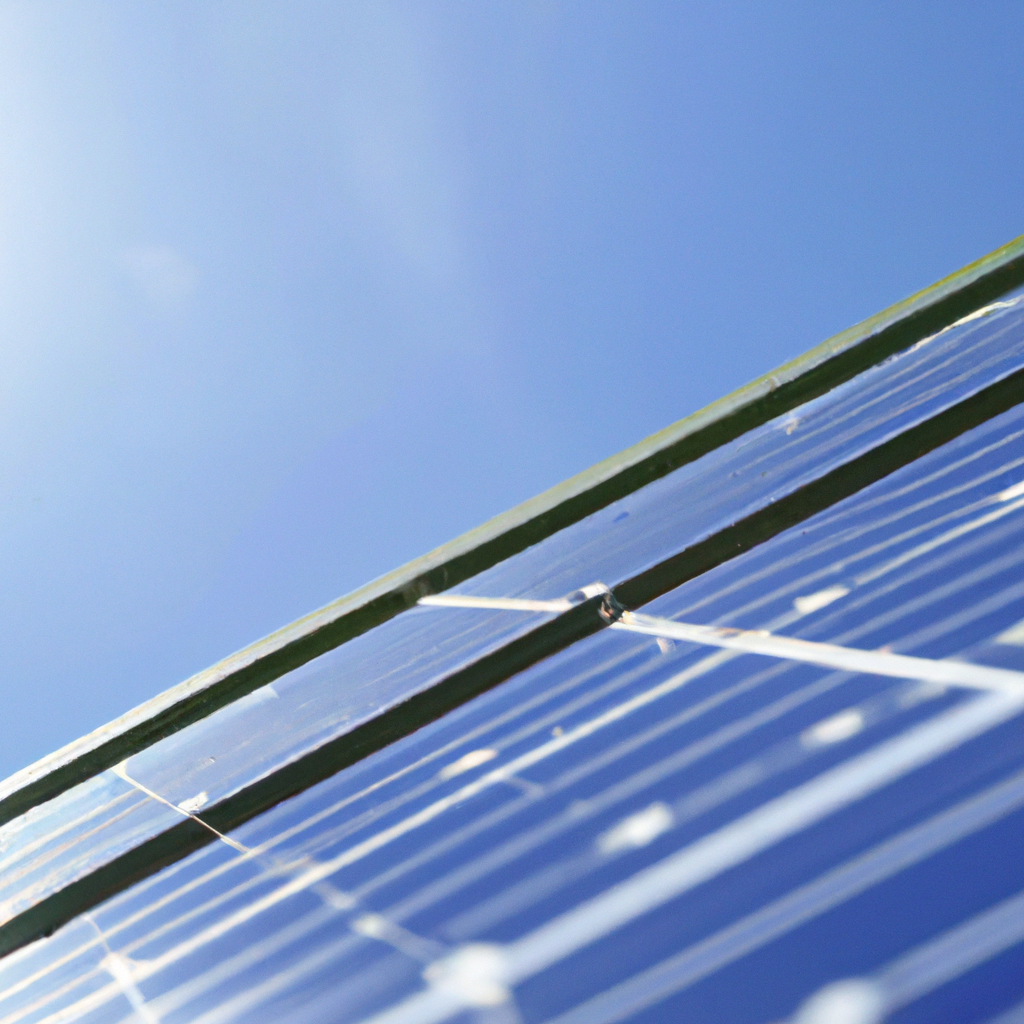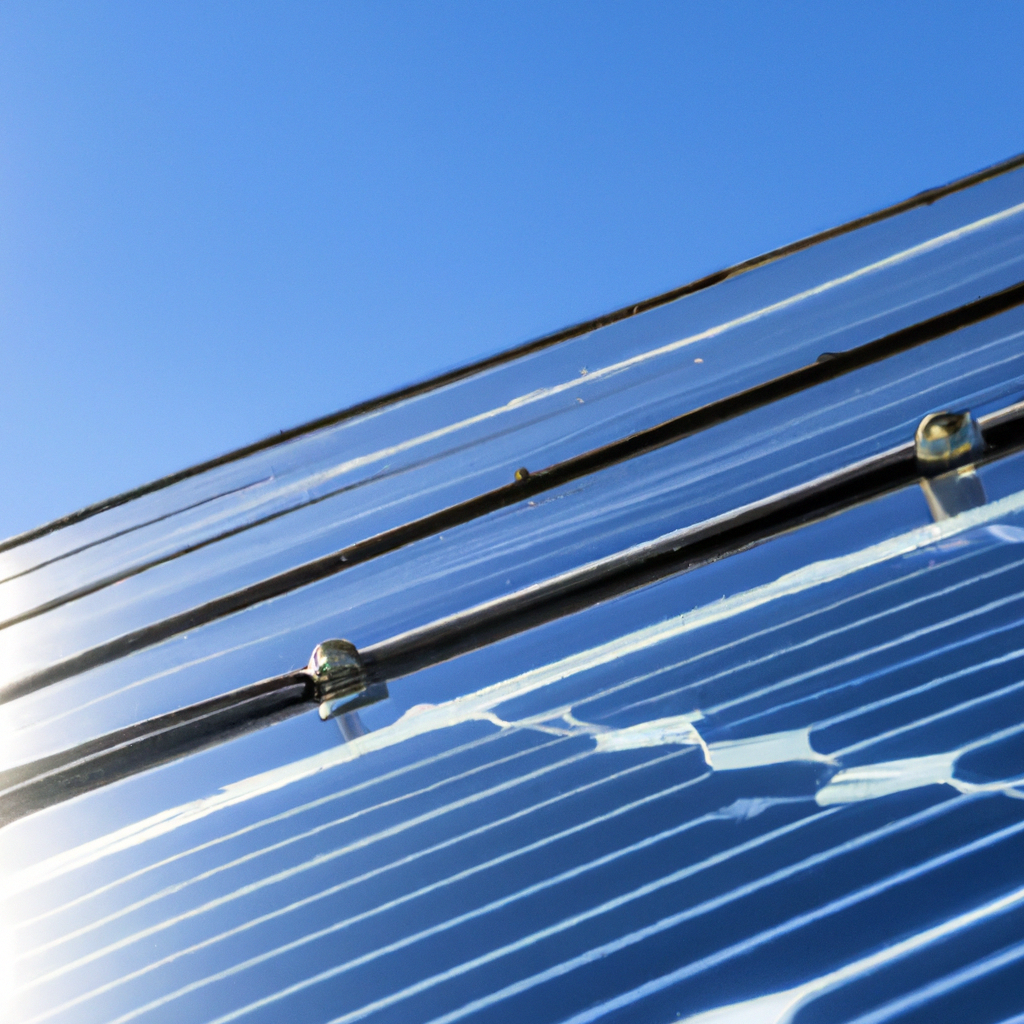Thinking about investing in solar energy for your home? Wondering if it’s a smart financial decision? Look no further! In this article, we will explore the question of whether solar energy is worth the investment for homeowners. We’ll weigh the costs, benefits, and potential savings associated with solar power, helping you make an informed decision about going green and harnessing the power of the sun. So, let’s shed some light on this important topic and discover if solar energy is a frugal choice for you!
Initial Considerations
Understanding Solar Energy
Before deciding to invest in solar energy for your home, it’s important to understand how solar energy works. Solar energy is a renewable energy source that is harvested from the sun’s rays using special solar panels installed on your roof. These panels convert sunlight into electricity that can power your home. By utilizing this abundant source of energy, you can reduce your reliance on traditional grid-supplied electricity.
Determining Energy Needs
The first step in considering solar energy for your home is to determine your energy needs. Take the time to assess your average monthly energy consumption, which can be found on your utility bills. Understanding your energy requirements will help you decide how many solar panels you need to install to meet your electricity demand.
Evaluating the Costs
When contemplating solar energy for your home, it’s crucial to evaluate the costs involved. While solar panel installation may come with a significant upfront investment, it is essential to consider the long-term financial benefits it can provide. By generating your electricity, you can potentially save money on monthly utility bills and even earn credits for excess energy fed back into the grid.
Assessing Your Home’s Suitability
Before moving forward with solar energy, you need to determine if your home is suitable for solar panel installation. Factors such as roof orientation, shading, and available space need to be evaluated. South-facing roofs with minimal shading are typically ideal for efficient solar energy generation. Conducting a site assessment will help you ascertain the suitability of your home for installing solar panels.
Environmental Impact
Reducing Greenhouse Gas Emissions
Opting for solar energy helps in reducing greenhouse gas emissions, which are major contributors to climate change. Solar power generation produces zero direct carbon emissions, making it a clean and sustainable energy alternative. By utilizing solar energy, you can actively contribute to curbing climate change and protecting the environment.
Minimizing Air Pollution
Conventional electricity generation methods such as burning fossil fuels release harmful pollutants into the atmosphere, contributing to air pollution. Solar energy, on the other hand, produces clean energy without any emissions or pollution. By adopting solar power, you can minimize air pollution and improve the overall air quality in your community.
Conserving Water Resources
Traditional electricity generation methods often require significant amounts of water for cooling purposes. By choosing solar energy, you can help conserve water resources, as solar panels do not require water to generate electricity. This is especially essential in areas where water scarcity is a concern.
Decreasing Dependence on Fossil Fuels
One of the most significant environmental benefits of solar energy is its ability to reduce dependence on fossil fuels. Solar power is a renewable energy source that doesn’t rely on depletable resources such as coal, oil, or natural gas. By transitioning to solar energy, you contribute to the overall reduction in the consumption of fossil fuels, leading to a lower carbon footprint.

Financial Benefits
Opportunity for Long-Term Savings
Investing in solar energy for your home can provide you with the opportunity for long-term savings. While the initial installation cost may seem substantial, solar panels can help you save money on your monthly electricity bills. Over time, the savings from reduced or eliminated utility bills can offset the upfront investment and result in substantial savings in the long run.
Return on Investment (ROI)
A well-designed solar energy system can offer a favorable return on investment. By generating your electricity, you reduce or eliminate the need to purchase power from the grid. The money saved on electricity bills can be considered as a return on your initial investment. As utility rates continue to rise, your solar energy system can provide even greater financial returns.
Potential Increase in Home Value
Installing solar panels on your home can potentially increase its overall value. Solar energy systems are seen as desirable features in today’s real estate market, as they offer long-term energy savings and environmental benefits. According to studies, homes with solar panels tend to sell for more and at a faster rate than homes without solar installations.
Tax Incentives and Rebates
In many regions, governments offer tax incentives and rebates to homeowners who choose solar energy. These financial incentives can help offset the initial installation costs and make solar energy a more cost-effective option. Research the tax incentives and rebates available in your area to maximize the financial benefits of going solar.
Energy Independence
Reducing Dependency on Utility Companies
By installing solar panels on your home, you can reduce your dependence on traditional utility companies. This increased self-reliance allows you to generate your electricity, making you less vulnerable to fluctuations in electricity prices and potential power outages. With solar energy, you have more control over your energy consumption and production.
Protection against Rising Energy Costs
Over the past few decades, the cost of traditional grid-supplied electricity has consistently increased. By generating your electricity with solar energy, you can protect yourself from rising energy costs and potential price hikes in the future. Solar energy provides a stable and predictable source of electricity, minimizing the financial burden of escalating energy prices.
Ensuring Power Supply during Outages
Power outages can be unpredictable and disruptive. However, with solar panels and an energy storage system, you can ensure a steady power supply during outages. By having an off-grid or grid-tied solar system with battery storage, you can power essential appliances and keep important systems running even when the grid is down.
Contributing to Grid Resilience
Solar energy also has the added benefit of contributing to grid resilience. Distributed solar installations allow for a more decentralized grid, reducing strain on the overall power system. During times of peak demand, local solar generation can help alleviate stress on the grid by supplying clean and reliable electricity to nearby homes and businesses.

Maintenance and Durability
Minimal Maintenance Requirements
Solar panels require minimal maintenance, making them a hassle-free energy option. Regular cleaning to remove dirt and debris, along with occasional inspections, is typically all that’s needed to keep your solar panels functioning optimally. With no moving parts, solar panels are durable and built to withstand various weather conditions, reducing the need for ongoing repairs.
Long Lifespan of Solar Panels
Quality solar panels have a long lifespan, often lasting well over 25 years. This longevity ensures that your investment in solar energy will continue to provide benefits for years to come. As technology continues to advance, solar panels are becoming even more efficient and durable, further enhancing their lifespan and reliability.
Warranty and Insurance Options
When choosing a reputable solar installer, you can benefit from warranty and insurance options. Most solar panel manufacturers offer warranties that cover panel performance and durability. Additionally, insurance plans can protect your investment in case of accidental damage or unforeseen circumstances. It’s essential to review and understand the warranty and insurance options provided by your solar panel system supplier.
Considering Local Climate Factors
The local climate has an impact on the generation capacity of solar panels. While solar panels can still produce electricity under various weather conditions, they perform best in areas with abundant sunlight. Before installing solar panels, it’s beneficial to consider your location’s climate and ensure that it is conducive to solar energy generation.
Potential Drawbacks
High Initial Installation Costs
Perhaps the most significant drawback of solar energy for homeowners is the high initial installation costs. The upfront expenses associated with purchasing and installing solar panels can deter some homeowners from pursuing this renewable energy option. However, it’s important to consider the long-term financial benefits and potential savings provided by solar energy before making a decision.
Dependent on Sunlight Availability
Solar panels operate by converting sunlight into electricity, which means they rely on sunlight availability. While solar panels can still generate electricity on cloudy days, their efficiency is reduced compared to bright and sunny conditions. It’s crucial to consider your region’s climate and sunlight availability before investing in solar energy.
Limited Solar Generation during Winter
During the winter months, when daylight hours are shorter, solar generation can be limited. With less sunlight available, solar panels may not produce as much electricity as they would during the summer months. However, energy storage systems and net metering options can help offset this limitation by allowing you to store excess energy or draw power from the grid when needed.
Storage and Grid Connection Challenges
If you choose to install an energy storage system along with your solar panels, additional considerations come into play. Storage systems can be expensive and may require additional space for installation. Moreover, connecting your solar panels to the grid may come with certain technical requirements and regulations that need to be addressed during installation.

Technological Advancements
Improvements in Solar Panel Efficiency
Technological advancements continue to enhance the efficiency of solar panels. As research and development progress, solar panels are becoming more efficient at converting sunlight into electricity. This means that newer panels require less surface area to generate the same amount of electricity as older panels, making them more space-efficient and cost-effective.
Emerging Battery Storage Solutions
The development of battery storage systems is revolutionizing the solar energy industry. Energy storage allows homeowners to store excess energy generated by their solar panels during the day and utilize it during times of high demand or when the sun isn’t shining. As battery technology improves and becomes more affordable, energy storage will play a key role in maximizing the benefits of solar energy.
Smart Grid Integration
Smart grid technology is being integrated with solar energy systems to optimize energy efficiency and grid stability. By utilizing real-time data and two-way communication, smart grids can enable better management of electricity supply and demand. This integration allows for more efficient utilization of solar energy and helps address grid challenges associated with integrating a high amount of renewable energy.
Future Cost Reductions
As solar energy becomes more mainstream and demand increases, the cost of solar panels and associated equipment is expected to decrease further. Improved manufacturing processes and economies of scale will result in more affordable solar energy solutions for homeowners. Keeping an eye on the industry’s future cost reductions can help you make an informed decision regarding the optimal timing for your solar panel installation.
Government Policies
Supportive Government Initiatives
Many governments worldwide are actively promoting the adoption of solar energy. Various initiatives, such as grants and low-interest loans, are available to homeowners who choose to invest in solar panels. These supportive government policies aim to make solar energy more accessible and affordable for homeowners, encouraging the transition to cleaner and more sustainable energy sources.
Renewable Portfolio Standards
Renewable portfolio standards (RPS) are policies that mandate a certain percentage of electricity to be generated from renewable sources. RPS goals are typically set by governments and are designed to promote renewable energy adoption. By complying with RPS requirements, utility companies often provide incentives and compensation to homeowners who produce their electricity using solar energy.
Net Metering Policies
Net metering allows homeowners with solar panels to receive credit for excess electricity generated and fed back into the grid. Under net metering policies, homeowners can offset their electricity consumption by the excess energy they produce, effectively reducing or eliminating their monthly bills. These policies incentivize solar energy production and ensure a fair exchange between homeowners and utility companies.
Feed-in Tariffs
Feed-in tariffs (FiTs) are another government policy used to promote renewable energy generation. FiTs offer homeowners a fixed rate for every unit of electricity they generate and feed back into the grid. This provides a guaranteed income stream for solar energy producers and encourages greater adoption of solar panels.

Choosing a Solar Installer
Researching Local Installers
When selecting a solar installer, it’s essential to research and gather information about local companies. Look for installers with a proven track record, experience in the industry, and positive customer feedback. Consider their reputation, certifications, and affiliations to ensure that you are choosing a reputable and reliable solar installer.
Evaluating Experience and Expertise
Installing solar panels requires specialized knowledge and expertise. Evaluate the experience and expertise of potential solar installers before making a decision. Inquire about their previous projects, the number of installations they have completed, and the qualifications of their installation team. A well-established and experienced solar installer is more likely to deliver a high-quality system that meets your expectations.
Comparing Quotes and Financing Options
Request quotes from multiple solar installers to compare costs and financing options. Consider the total cost, warranty coverage, equipment quality, and installation timeline when assessing the quotes. Additionally, explore financing options available through the installer to determine the most suitable and affordable arrangement for your solar energy system.
Considering Customer Reviews
Customer reviews and testimonials provide valuable insights into the overall customer experience with a solar installer. Look for reviews that mention promptness, professionalism, and the post-installation support provided. Positive customer feedback indicates a reliable solar installer committed to delivering excellent service and customer satisfaction.
Conclusion
Weighing the Pros and Cons
When considering solar energy for your home, it’s crucial to weigh the pros and cons based on your unique circumstances. Evaluate the financial benefits, environmental impact, and long-term vision for homeownership while also considering potential drawbacks and any limitations specific to your location.
Personal Financial Situation
Assess your personal financial situation and determine if the initial investment aligns with your budget and long-term financial goals. Consider the potential savings on electricity bills, return on investment, tax incentives, and rebates available in your area to make an informed decision about the financial feasibility of solar energy for your home.
Environmental Considerations
Take into account the environmental impact of your energy choices. Choosing solar energy helps reduce greenhouse gas emissions, minimize air pollution, and conserve natural resources. If you prioritize sustainability and want to make a positive impact on the environment, solar energy can align with your values and contribute to a greener future.
Long-Term Vision for Homeownership
Consider your long-term vision for homeownership. Solar energy is a long-term investment that can provide financial benefits for decades. If you plan to stay in your home for an extended period, the long-term savings and potential increase in home value can make solar energy a worthwhile investment.
By carefully considering the benefits, drawbacks, financial implications, and environmental impact, you can make an informed decision about whether solar energy is worth the investment for your home. Remember to consult with reputable solar installers, explore financing options, and assess government policies and incentives to maximize the benefits of solar energy for your specific circumstances.


